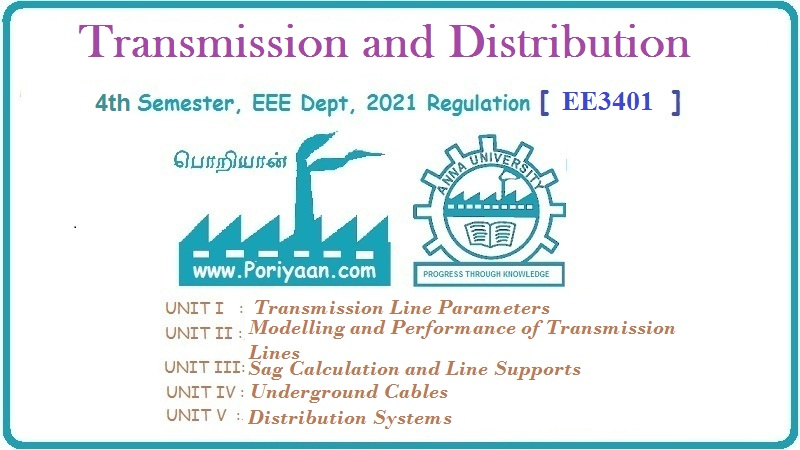Transmission and Distribution: Unit II: (b) Corona
Basic Principle or phenomenon of Corona
In the free space surrounding the conductors, some ionization is always present due to radioactivity, cosmic rays and ultraviolet rays.
Corona
Introduction
It can be noticed that near the overhead
lines there exists a hissing noise and sometimes a faint violet glow. The
effect due to which such phenomenon exists surrounding the overhead lines, is
called corona effect.
When a normal alternating voltage is
applied across two conductors with enough spacing in between, then there is no
change in the atmospheric conditions surrounding the conductors. But if the
voltage applied exceeds a particular limiting value then the air surrounding
the conductors gets ionized due to which hissing noise or a faint violet glow
appears.
Thus the phenomenon of hissing noise,
faint violet glow and production of ozone gas surrounding the overhead lines,
due to ionization of air is called corona.
The corona effect takes place when
applied voltage exceeds a particular value which is called critical disruptive
voltage. As this voltage increases, the glow and hissing noise also increases.
If the voltage increases upto breakdown value then the flash over occurs
between the conductors, due to breakdown of air between the conductors.
Similarly if the ratio of spacing between the conductors to the radius of the
conductor is less than 15 then the flash over occurs before corona. In practice
this ratio is very high and there is no possibility of a flash over. When a
voltage more than the critical disruptive voltage is applied, the faint violet
glow is even between the two parallel polished conductors and can be seen all
along the length of the conductors. At the rough points, it appears little bit
brighter. In case of d.c. voltage, reddish beads are formed near negative
conductor while smoother bluish white uniform glow is formed near positive
conductor. The hissing noise can be easily heard while the formation of ozone
gas can be detected from its odour.
1. Basic Principle of Corona
In the free space surrounding the
conductors, some ionization is always present due to radioactivity, cosmic rays
and ultraviolet rays. Thus the air near the conductors consists of some free
electrons, ionised particles alongwith the neutral molecules. When the
potential is applied to the conductors, a potential gradient is developed in
the air. This potential gradient is maximum around the surface of the
conductors. Due to the potential gradient, the free electrons will start moving
with certain velocity which depends on the field strength. The greater is the
applied voltage, higher is the potential gradient and the velocity acquired by
the free electrons. These electrons moving with high speed collide with the
neutral molecules in the air. If the potential gradient is about 30 kV/cm
(maximum) then striking free electron dislodge the electrons from the neutral
molecules. This increases the number of free electrons which also acquire high
velocities and start colliding with other neutral molecules. The process of
ionization is cumulative which finally results into an electron avalanche. This
ionization of air surrounding the conductors gives rise to corona effect.
Review Question
1. Explain the phenomenon of corona.
AU : Dec -03, 12, 16, May-15, Marks 4
Transmission and Distribution: Unit II: (b) Corona : Tag: : - Basic Principle or phenomenon of Corona
Related Topics
Related Subjects
Transmission and Distribution
EE3401 TD 4th Semester EEE Dept | 2021 Regulation | 4th Semester EEE Dept 2021 Regulation
